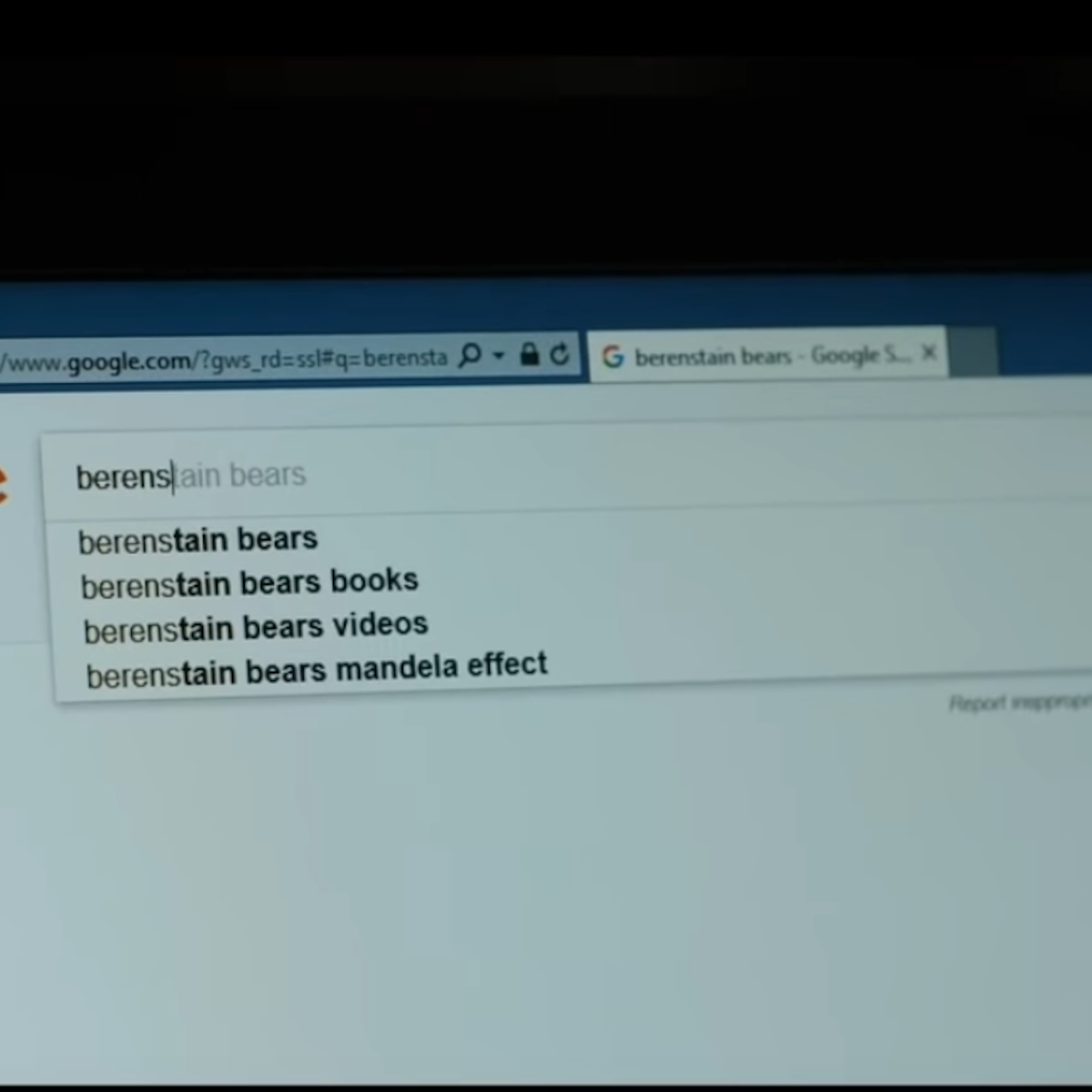
You’ve likely used the internet to help you remember something, like a quote from a movie, only to discover the answer differed from what you had anticipated. Maybe you shrugged, telling yourself your memory was faulty, and went on with your life.
But what if you found thousands of people online had this same experience about this same movie quote – and misremembered it in exactly the same way?
Could all these people be wrong? What if their memories were actually correct, and someone – or something – had slightly altered the past?
That’s the theme of the new film “The Mandela Effect.” The movie’s title refers to a real internet phenomenon – some might call it a conspiracy theory – that has become increasingly popular over the past few years.
Those who believe in the Mandela Effect are convinced that small details from the past are being altered.
As a scholar of religion, I see the growing interest in the Mandela Effect as one offshoot of a larger trend in conspiratorial and alternative thinking. But it also signals a change in the way people are experiencing history and a general distrust of the collective historical narrative.
The origin story
The phrase appears to have been coined around 2009 by a paranormal researcher named Fiona Broome.
On her website, Broome explained how, during a science fiction and fantasy convention, someone mentioned to her that former South African president Nelson Mandela was still alive. And yet Broome was convinced that he had died in prison in the 1990s. She even remembered watching his funeral on TV. Of course, Nelson Mandela was very much alive at the time.
During the convention, she probed others about commonly misremembered historical details. The phrase “the Mandela Effect” was born.
The Mandela Effect caught my attention in 2012 after I read a blog post about one of the better-known examples of it: the spelling of the popular children’s book series “The Berenstain Bears.”
The blogger, “Reece,” was convinced it had always been spelled “Berenstein.” To explain the change, the post floated the idea that our reality had been altered. According to Reece, in the past, the name actually had ended with “–ein.” But in this new reality, it had always been “–ain.” The blog concluded by proposing that we are living in a parallel universe.
Before Reece wrote this post, the spellings were already being discussed on the online message board 4chan, and many others also remembered it as “Berenstein.” As the idea migrated to YouTube, it took off, with one video garnering almost 10 million views.
If you build it…he will come?
Since then, hundreds of examples of the Mandela Effect have been documented. People are convinced that Darth Vader’s quote from “The Empire Strikes Back” – “No, I am your father” – was originally “Luke, I am your father.”
Some claim that in “Field of Dreams,” the line “If you build it, he will come” was changed from “If you build it, they will come.” And they’re certain that the Queen’s famous quote from “Snow White” – “Magic mirror on the wall” – was, at one point, “Mirror, mirror on the wall.”
It isn’t just movie quotes. Proponents of the Mandela Effect are convinced that “Sex and the City” was once actually titled “Sex in the City.” They also claim logos and product names, from Ford to Froot Loops, have changed, and that Rich Uncle Pennybags from Monopoly once wore a monocle but now no longer does.
Among adherents, several explanations for this phenomenon have emerged.
Some theorize that the Large Hadron Collider at the European Organization for Nuclear Research has been distorting the fabric of reality with its experiments, launching us into an alternative dimension. Others have interpreted it through a religious lens; to them, it’s a sign that the end times are imminent.
Cognitive scientists tend to give a more straightforward, psychological explanation: they’re examples of “schema driven errors,” which refer to distortions in the way memories are packaged and then recalled.
Still, the forces behind the widespread interest in this phenomenon are not fully understood. Perhaps it’s due to the fact that, over the past several years, more people seem to have embraced alternative and conspiratorial ways of thinking.
The internet has oversaturated the world with information, and it’s also radically democratized content to an extent we haven’t seen since the invention of the printing press. For this reason, people are more likely to question conventional ways of thinking – as Goethe once wrote, “We know accurately only when we know little; with knowledge doubt increases.”
But this has also created an environment for conspiracy theories to thrive.

History’s metanarratives are malleable
Not everything about the Mandela Effect can simply be discounted as conspiracies or false collective memories.
For example, some proponents of the Mandela Effect claim that historical events continue to crop up that no one has heard of, for example, the explosion on Black Tom Island, when German agents blew up a munitions facility in New York Harbor in 1916. They allege that details from famous historical events, such as the JFK assassination and the Tiananmen Square protests, have changed. There are even claims that new animals have emerged out of thin air, like the dumbo octopus and coconut crab.
In such cases, people are actually confronting something that historians have long grappled with – namely, an understanding that the historical narrative is, in part, a human construct, not an objective reality. There tend to be gaping holes and inconsistencies in the way history and science are formed, taught, learned, and understood.
The expression “history is written by the winners” highlights this issue, as does French writer Bernard Le Bovier de Fontenelle’s 1758 description of history as “une fable convenue,” or “a fable agreed upon.”
Accounts of the past – just like memories – are recreated, usually from a sparse number of available facts and often with politically or intellectually biased motives.
Most people typically don’t concern themselves with the question of whether history is real. Yet they go through life with assumptions narrated by the powers that be, whether it’s a cultural trope like the American dream or the idea that capitalism arose through a natural progression of mercantile economics, rationalization and human nature.
Such metanarratives are manifest; all contain an element of truth. But all are human creations, and because they have been created, they can be changed.
In the movie “The Mandela Effect,” the main character descends into a world where nothing can be trusted and reality is constantly in flux.
As we plunge toward an unknown future that feels increasingly unstable, it’s a fitting parable for our time. Questioning the shared understanding of reality and history might provoke instability. But it may also induce answers to questions we never thought to ask.
Aaron French, PhD Candidate in the Study of Religion, University of California, Davis
This article is republished from The Conversation under a Creative Commons license. Read the original article.


Leave a Reply